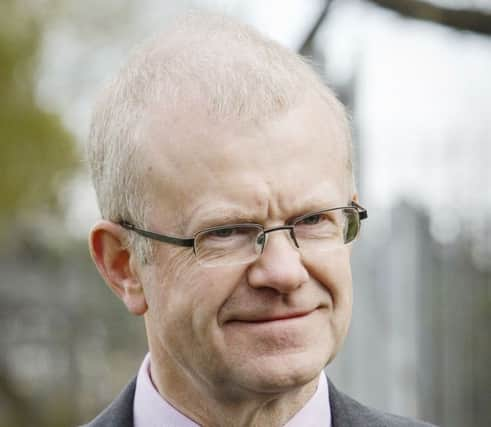SNP MSP John Mason sparks anger by marking Easter Rising leader


Mr Mason is one of nine MSPs from the SNP, Labour and the Greens to have signed the motion lodged by Green MSP Ross Greer.
The Edinburgh-born socialist James Connolly was a key figure in the violent rebellion in Dublin in Easter 1916, regarded as a key moment in the eventual establishment of the Republic of Ireland.
Advertisement
Hide AdAdvertisement
Hide AdMr Greer’s motion has also been signed by Tom Arthur of the SNP, Pauline McNeill, Alex Rowley and Elaine Smith of Labour plus Mark Ruskell, Patrick Harvie and John Finnie of the Greens.
Mr Greer’s motion notes James Connolly’s founding of the Irish Citizens’ Army “originally to defend workers involved in the Dublin Lockout of 1913 but which evolved into a revolutionary organisation committed to the establishment of an independent, socialist Ireland”.
It also “acknowledges Connolly’s role as de-facto commander in chief of the 1916 Easter Rising against British rule in Ireland and his contribution to, and signing of, the Proclamation of the Irish Republic, which asserted among other ideas that the men and women of Ireland were equal and all guaranteed religious and civil liberty, equal rights and equal opportunities, and his subsequent execution by a British firing squad, while tied to a chair on 12 May 1916.”
It adds that it “considers Connolly to be one of the leading Marxist theorists of his era, whose works it believes continue to inspire socialists and trade unionists across the world”.
The Easter Rising, which saw Irish Republicans storm the Dublin GPO, was a hugely controversial event. Its critics believe that it served to legitimise the use of the gun in Irish politics.
The decision to execute the rebellion’s leaders, including Mr Connolly, stoked anti-British sentiment in Ireland.
A Scottish Conservative spokesman said: “What people like the naïve Ross Greer and John Mason have to realise is, when they embark on these stunts, they cause huge upset to people who’ve lost loved ones.
“They might pat themselves on the back, but their actions have clearly caused distress.
Advertisement
Hide AdAdvertisement
Hide Ad“Their constituents would much prefer they worked to represent their interests in parliament, not grandstand on other matters.”
Mr Mason has previously come under fire for his views on Irish politics. Last year Mr Mason was asked via twitter to support a private prosecution of those suspected of murdering the three young Scottish soldiers, who were victims of the IRA during the Troubles. He declined to do so. In one of his twitter posts, Mr Mason said he would not take sides between Irish and British, adding: “You say Irish murderers. Others say freedom fighters. I support Scottish soldiers if they do good but not if they do bad.”
He later apologised for his online remarks made when discussing the deaths of Fusiliers Dougald McCaughey, 23, 17-year-old John McCaig and his brother Joseph McCaig, 18.
The off-duty soldiers were lured from a Belfast bar by the IRA in 1971 on the pretext of meeting girls. They were then taken to north Belfast and shot.
Former DUP MLA Nelson McCausland, who represented the area where the soldiers were killed, told the Belfast News Letter: “There is a sharp contrast between his open affirmation of an Irish republican icon and his reticence to support Scottish families whose sons were murdered by Irish republicans.” The SNP declined to comment.
